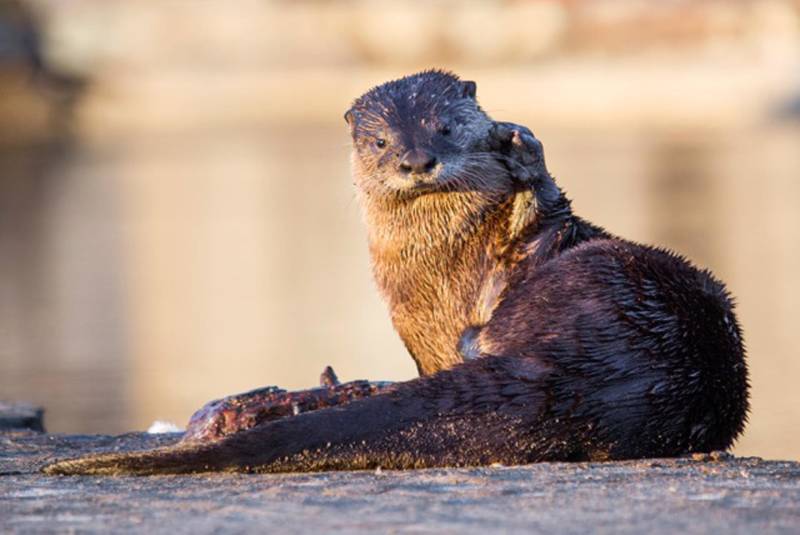As winter rains swell Bay Area waterways, river otters are likely to be on the move. Go outside this weekend and you might see one.
"When creeks rise and there's lots of water, they're more likely to explore and search out new places," says Megan Isadore, director of River Otter Ecology Project, based in Marin County.
The small, weasel-related aquatic mammals are making a comeback after almost totally disappearing from the region during the last century. Otter populations were decimated, first by trapping, then by pollution. Isadore believes the population has been rebounding under the radar for decades, aided by the banning of trapping in 1961 [PDF] and the U.S. Clean Water Act of 1972.
"We started to notice them more and more often in our creeks in Marin in the early 2000s," says Isadore. "When we looked into what information there was on river otters in the Bay Area, we found that there was really no information."
